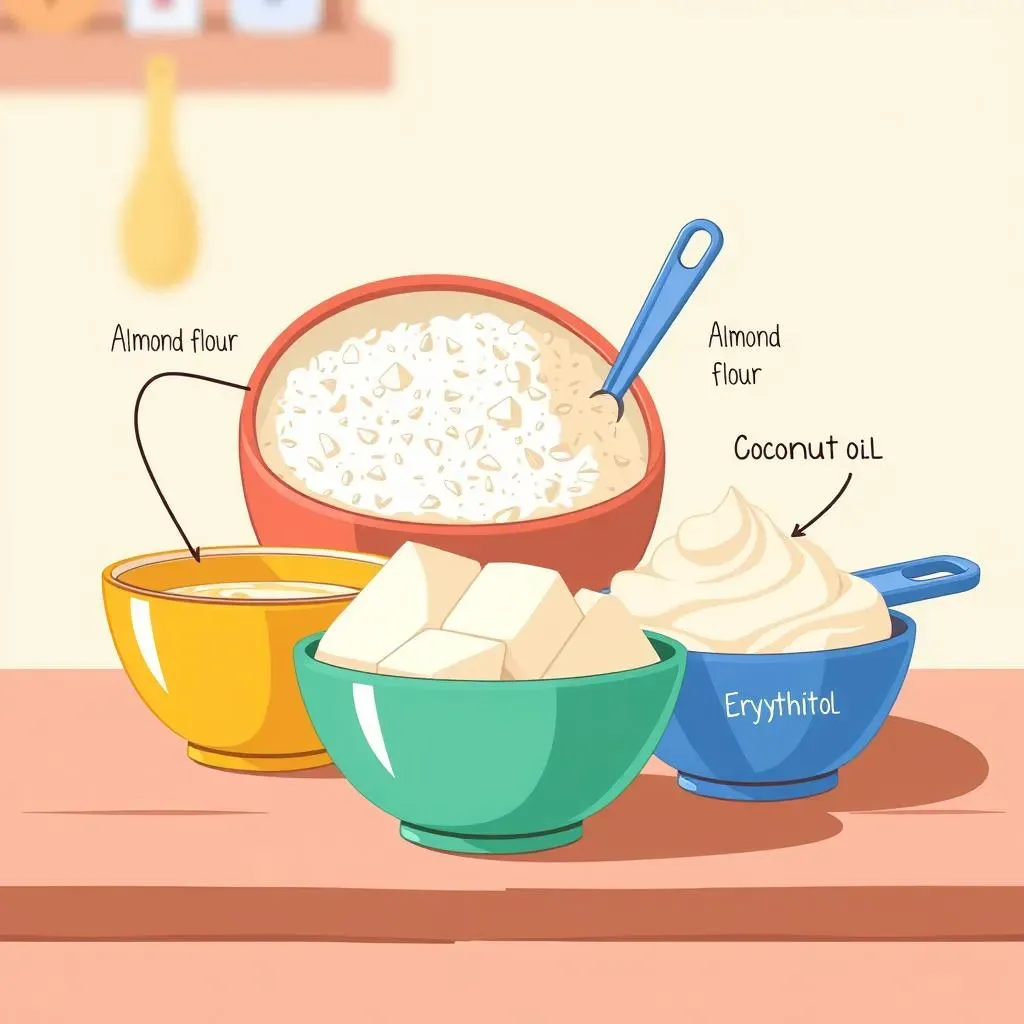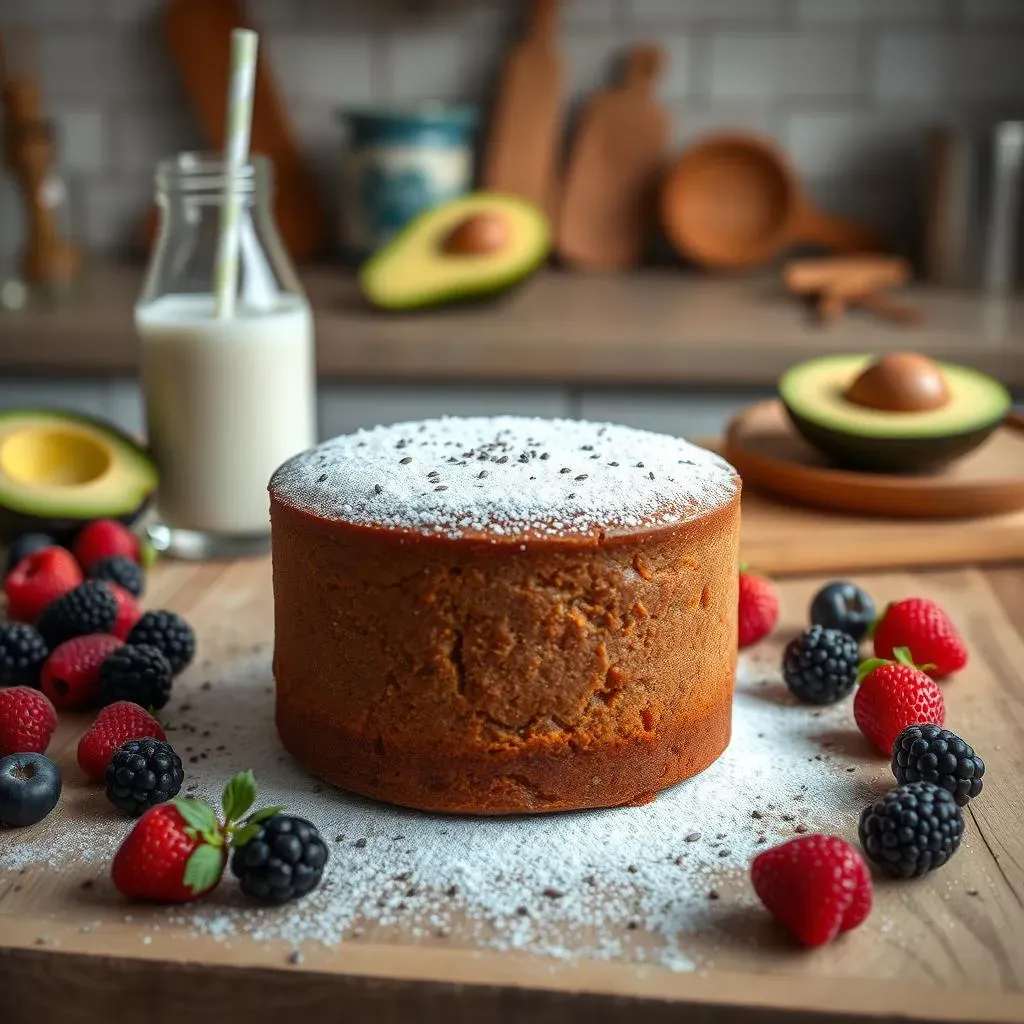Table of Contents
So, you're curious about keto cakes? Are they a guilt-free indulgence, or just another tempting trap for your waistline? That's a delicious question, and one we'll explore thoroughly in this article. We'll dissect the ingredients typically found in keto cakes, examining their nutritional profiles and potential health impacts. We'll then dive into the big question: are keto cakes truly healthy? We'll weigh the benefits against the drawbacks, providing a balanced perspective, not just sugary-sweet optimism. Finally, we'll arm you with practical tips and recipe considerations to help you make healthier, more informed choices when it comes to low-carb baking. By the end, you'll have a clearer understanding of whether keto cakes fit into a healthy lifestyle and how to enjoy them responsibly. Let's get baking (and thinking!)
Understanding Keto Cakes: Ingredients and Nutritional Breakdown
Understanding Keto Cakes: Ingredients and Nutritional Breakdown
Let's talk keto cakes! The magic (or maybe the madness) lies in the ingredients. Forget your usual flour and sugar; keto cakes rely on low-carb alternatives to mimic the texture and taste of traditional treats. Almond flour, coconut flour, and other nut-based flours are common, offering a slightly denser, sometimes crumbly texture. Sweeteners like erythritol, stevia, or monk fruit replace sugar, significantly reducing the carb count. But it's not just about swapping ingredients; the ratios are crucial. Too much almond flour can make the cake dry, while too little sweetener leaves you with a bland, unsatisfying result. The fat content is also key – think butter, coconut oil, or cream cheese – contributing to that moist, rich texture we all crave. Understanding these ingredient interactions is the key to baking a successful, and hopefully healthy, keto cake.
Ingredient | Typical Keto Role | Nutritional Impact |
|---|---|---|
Almond Flour | Flour Substitute | High in healthy fats, moderate protein, low carbs |
Erythritol | Sugar Substitute | Low-calorie, low-glycemic index |
Coconut Oil | Fat Source, Moisture | High in saturated fats, source of medium-chain triglycerides (MCTs) |
Cream Cheese | Fat Source, Moisture, Flavor | High in saturated fats, source of protein |
One thing to remember is that even with these substitutions, a keto cake isn't a health food in the same way a salad is. While it's lower in carbs than a regular cake, it's still relatively high in fat and calories. So, moderation is key! Don't think you can eat a whole keto cake and still maintain ketosis; portion control is vital. And always check the nutritional information of your specific recipe. There's a wide variation depending on ingredients and ratios. Think of it as a treat, not a meal replacement.
- Always read nutritional labels carefully.
- Be mindful of portion sizes.
- Don't rely on keto cakes as a primary food source.
Are Keto Cakes Truly Healthy? Weighing the Pros and Cons
Are Keto Cakes Truly Healthy? Weighing the Pros and Cons
The Keto Cake Conundrum: Lower Carbs, But What Else?
Okay, so we've established that keto cakes are lower in carbs than their traditional counterparts. That's a definite plus for those following a ketogenic diet, as it helps maintain ketosis, the metabolic state where your body burns fat for fuel. But let's not get carried away. While lower in carbs, they're often higher in fat and calories. This isn't inherently bad, especially if you're already managing your overall calorie intake, but it's crucial to remember that even "keto-friendly" treats should be enjoyed in moderation. Think of it like this: a small slice of keto cake as a special treat is different from a whole cake every day!
Type of Cake | Approximate Net Carbs per Serving | Approximate Fat per Serving |
|---|---|---|
Traditional Chocolate Cake | 25-35g | 10-15g |
Keto Chocolate Cake (Example) | 5-10g | 25-35g |
Beyond Carbs: The Bigger Picture of Keto Cake Health
It's not just about carbs. The ingredients used in keto cakes can influence their overall health profile. While almond flour is a good source of healthy fats and fiber, excessive consumption of some keto sweeteners, like erythritol, has been associated with potential digestive issues in some individuals. Additionally, many keto cakes rely heavily on saturated fats from ingredients like butter and coconut oil. While these fats aren't necessarily "bad," a diet too high in saturated fat can have negative consequences for heart health in the long run. Therefore, it's not a simple "good" or "bad" scenario. It's more nuanced than that.
- Consider the source of fats used in the recipe.
- Pay attention to the type and amount of sweeteners.
- Don't solely focus on carbs; look at the overall nutritional profile.
The Verdict? Enjoy Responsibly!
So, are keto cakes healthy? The answer is...it depends. They can be a part of a healthy ketogenic diet if consumed in moderation and as part of a balanced approach. They're not a health food, but neither are they inherently unhealthy. Focus on recipes with whole food ingredients, limit your portion sizes, and remember that even keto treats should be part of a larger, healthy eating plan. The key is mindful consumption. Enjoy a slice, but don't let it derail your overall health goals. It’s all about balance, my friend – just like life itself!
"The best way to enjoy a keto cake is to savor every bite, knowing you've made a conscious choice to indulge in moderation." - Anonymous Keto Baker
Making Healthier Keto Cakes: Tips and Recipe Considerations
Making Healthier Keto Cakes: Tips and Recipe Considerations
Making Healthier Keto Cakes: Tips and Recipe Considerations
Let's face it: even with low-carb swaps, a keto cake isn't a health food. But that doesn't mean we can't make healthier choices! We can absolutely nudge our keto cakes towards the "healthier" side of the spectrum. Think about upping the fiber content by incorporating more almond flour or adding seeds like chia or flax. Experiment with different sweeteners; some have fewer potential side effects than others. And don't be afraid to get creative with healthy fats! Instead of relying solely on butter or coconut oil, consider adding avocado or incorporating nut butters for flavor and added nutrients. Remember, it's a balancing act. We're not aiming for perfection, just progress.
- Increase fiber with almond flour or seeds.
- Experiment with different sweeteners (e.g., monk fruit, stevia).
- Incorporate healthy fats like avocado or nut butters.
- Reduce refined sweeteners.
Another crucial aspect is portion control. Even the healthiest keto cake can sabotage your diet if you eat an entire one in one sitting! A small slice as an occasional treat is perfectly acceptable; it's the overindulgence that can cause problems. Also, pay attention to the overall nutritional profile of your recipe. Don't just focus on the carb count; look at the total calories, fat, and protein content to ensure it aligns with your dietary goals. And finally, don't be afraid to experiment! Baking is a journey of discovery. There are endless possibilities for creating delicious and relatively healthy keto cakes.
Ingredient Swap | Health Benefit | Potential Drawback |
|---|---|---|
Replacing refined coconut oil with avocado oil | Higher in monounsaturated fats | May slightly alter cake texture |
Adding chia seeds | Increased fiber and omega-3 fatty acids | Slightly altered taste and texture |
Using monk fruit sweetener | Lower glycemic index, fewer potential digestive issues | Can be more expensive than other sweeteners |
